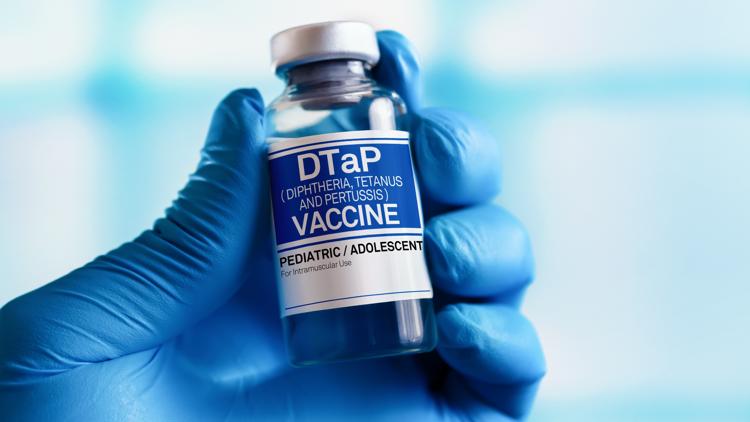GRANT COUNTY, Wash. — The Grant County Health District (GCHD) says they are seeing a significant increase in cases of whooping cough in Grant County.
They report that as of August 21, there have been 21 people with confirmed cases of whooping cough and 7 others with symptoms since June.
GCHD says all but one of the people confirmed to have whooping cough or symptoms were not vaccinated or were not up-to-date on the whooping cough vaccine.
They say that 22 of the total 28 infections can be linked to Slavic churches in Moses Lake and Soap Lake and that 23 of the 28 infections occurred in people 16 years or younger.
Before this year, the last confirmed case was in 2019.
GCHD urges community members to be sure they have an up-to-date whooping cough vaccine and asks healthcare providers to notify GCHD of any suspected infection by contacting them at (509) 766-7960.
There are two vaccines that protect against whooping cough:
DTaP is for babies and children younger than seven years.
Tdap is for kids seven years and older, adolescents and adults (including pregnant people).
Pregnant people need Tdap with each pregnancy.
If vaccinated as a teenager (11 or older), you do not need an additional dose as an adult unless you are pregnant.
GCHD says immediate action has been taken to notify anyone who may have been in contact with those who have been sick. GCHD is working with the Slavic community in Moses Lake to provide recommendations and information about the situation.
Whooping cough is a highly contagious infection that can be especially dangerous for infants under the age of one, pregnant people and those with chronic respiratory illness. GCHD says it is mostly spread through coughing or sneezing.
Symptoms of whooping cough can often be mistaken for allergies, asthma or a cold and can present up to 3 weeks following exposure.
Early symptoms (within 1 to 2 weeks of the infection) usually include:
Runny nose
Low-grade fever
Mild, occasional cough
Apnea – a pause in breathing (in babies)
Later symptoms (after 1 to 2 weeks of the infection) usually include:
Fits of many, rapid coughs followed by a high-pitched "whoop"
Vomiting during or after coughing fits
Exhaustion after coughing fits
GCHD says if you have been exposed to whooping cough or have symptoms, to make an appointment with your healthcare provider and call the clinic before you visit. They recommend wearing a mask to prevent the spread of infections and following other clinic instructions.
Whooping cough can be treated with antibiotics. GCHD says it is important to start treatment as soon as possible to avoid spreading the disease to others. Early treatment can also make the symptoms end sooner and be less severe.
If you are prescribed antibiotics for whooping cough, you should finish the prescription as directed by your doctor.
GCHD says those who have been around someone with whooping cough should receive antibiotics to prevent them from getting sick and to stay away from others until the first 5 days of treatment are completed.
For more information about whooping cough, visit the King County Public Health information page.



